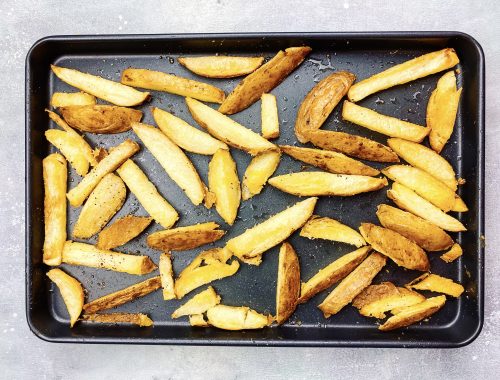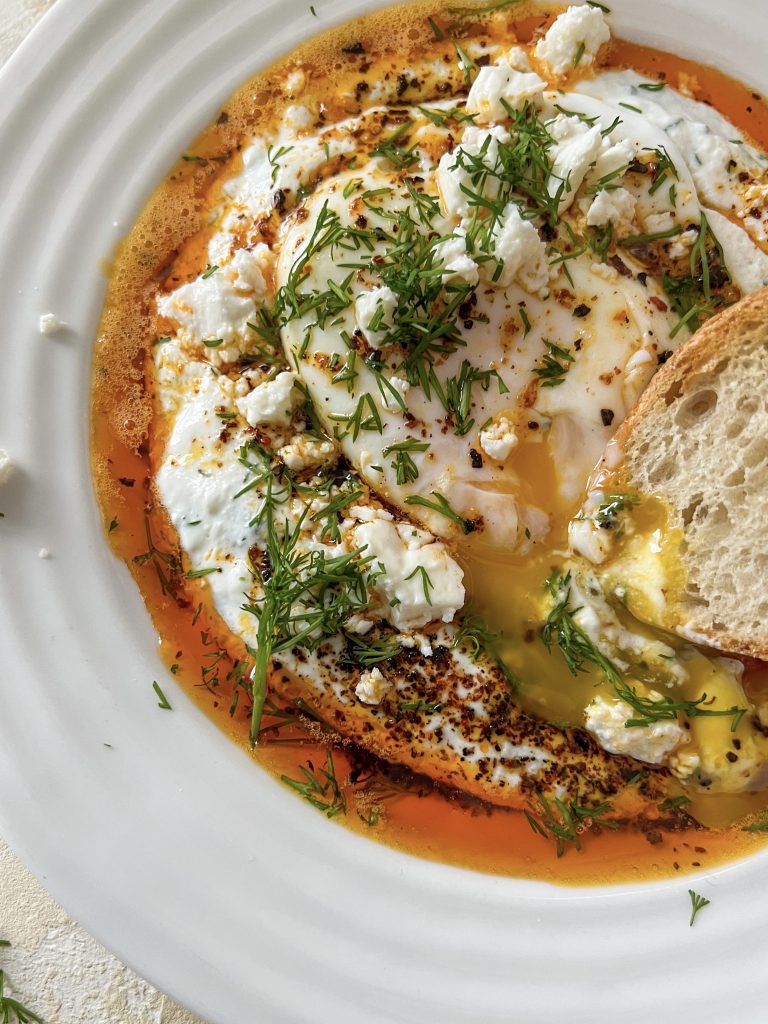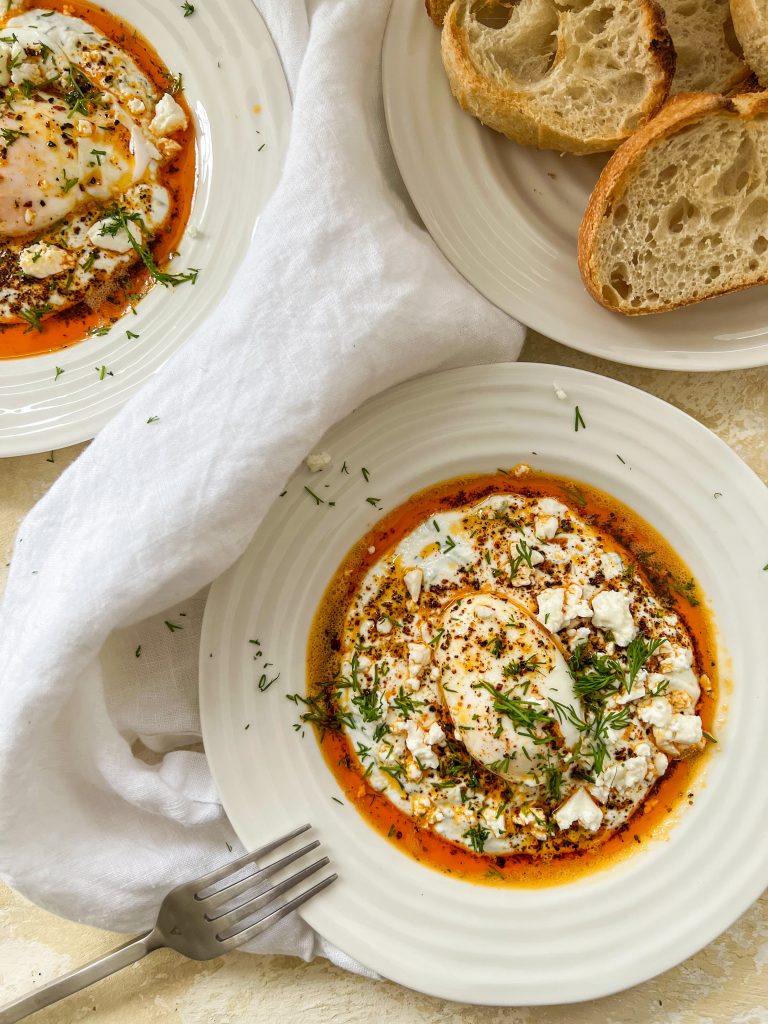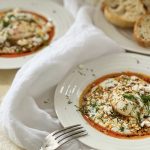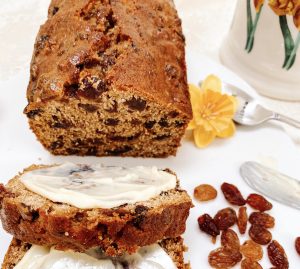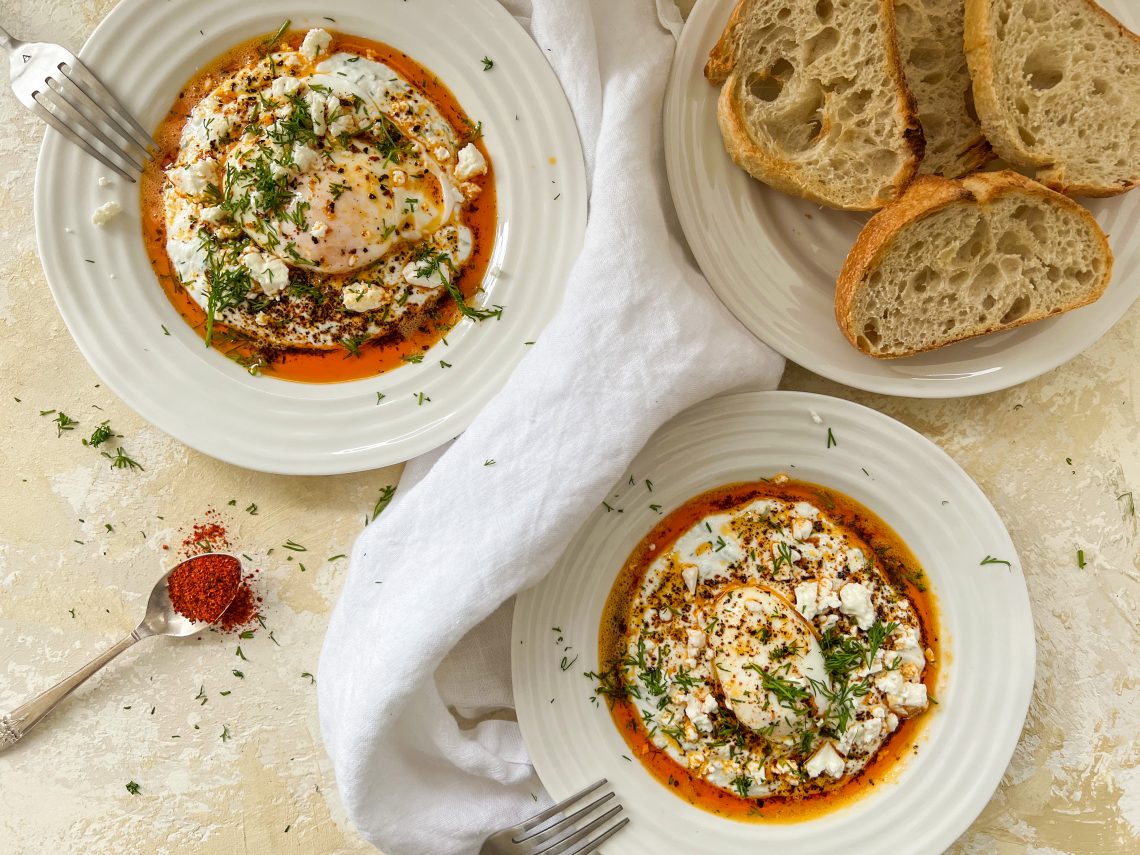
Turkish Eggs
Need breakfast or brunch inspiration? Look no further – Turkish Eggs are healthy, quick to make, and bursting with flavour, texture and goodness. Thick, creamy Greek yoghurt, mixed with chopped, fresh dill, crushed garlic and sea salt, add some soft poached eggs, a luscious, spicy Aleppo pepper butter, and finish with crumbled, salty feta cheese and fresh dill. Serve with crispy toasted sour dough bread on the side. I kid you not – this will tickle your tastebuds, satisfy your tummy and, I guarantee, by the time you have finished it, you will be planning to make it again!
Feta cheese is not traditionally added to this dish, but we love the salty, creamy kick that just a little crumbled over, brings to this dish. Up to you.
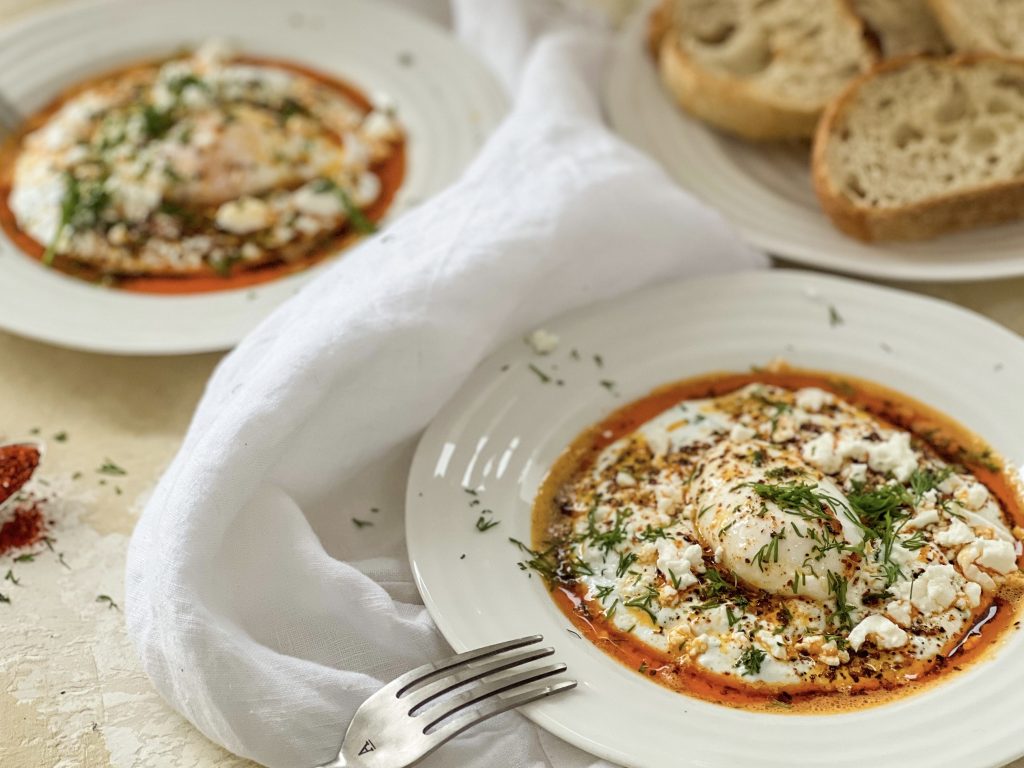
Aleppo Pepper
Using easy to find and store cupboard ingredients, the only slightly unusual ingredient is the Aleppo Pepper, and even this is available in most large supermarkets. Also known as Pul Biber, it is a Turkish and Syrian paprika style spice used both as a condiment and in many Middle Eastern and Mediterranean dishes. It is peppery, tangy, slightly sweet, and is about half as hot, or less, as standard pepper. If you cannot get hold of it, use a combination of sweet paprika and chilli flakes instead. (See Recipe Notes below)
Where is this recipe from?
If you google Turkish Eggs, you will find many, very similar recipes. The first time I made it, I used Nigella Lawson’s recipe and have subsequently adapted it, albeit only very slightly, and also added some crumbled feta cheese. See here for Nigella’s recipe.
How to make Turkish Eggs
Collect all your ingredients together:
- Greek yoghurt
- garlic, peeled and crushed
- sea salt granules
- chopped fresh dill
- unsalted butter
- olive oil
- Aleppo pepper – or a mix of sweet paprika powder plus chilli flakes, to taste
- fridge cold eggs
- feta cheese, optional and to taste. I used around 50g
- sourdough toast
Now make this wonderful meal:
- Prepare the yoghurt base: in a mixing bowl stir together the Greek yoghurt, garlic, salt and half of the chopped fresh dill.
- You can either serve the yoghurt as is, or you can warm it slightly by sitting the mixing bowl over a saucepan of barely simmering water and heating very gently. Give it an odd stir and check it is not getting too warm.
- Poach the eggs: place a sieve over a bowl and crack one egg at a time into the sieve so that the really runny white can be separated from the egg. Tip the egg into a ramekin and repeat.
- Fill a pan with sufficient water to cover the eggs and bring to a very, very gentle simmer. You should be able to see small bubbles on the base of the pan, the water should not be splashing around. Try not to use a very deep pan. Gently tip the eggs in the water and cook for 2 – 3 minutes, until the white has set and the yolks are soft, or cooked to your liking.
- Make the Aleppo butter: melt the butter over a medium heat, add the olive oil and Aleppo pepper and stir to mix.
- Assemble the dish:
- a layer of yoghurt on the base of a plate
- an egg
- drizzle over the Aleppo butter
- crumble over some feta cheese
- sprinkle over the remaining fresh, chopped dill
- Serve with hot fresh toasted sourdough or your favourite bread.
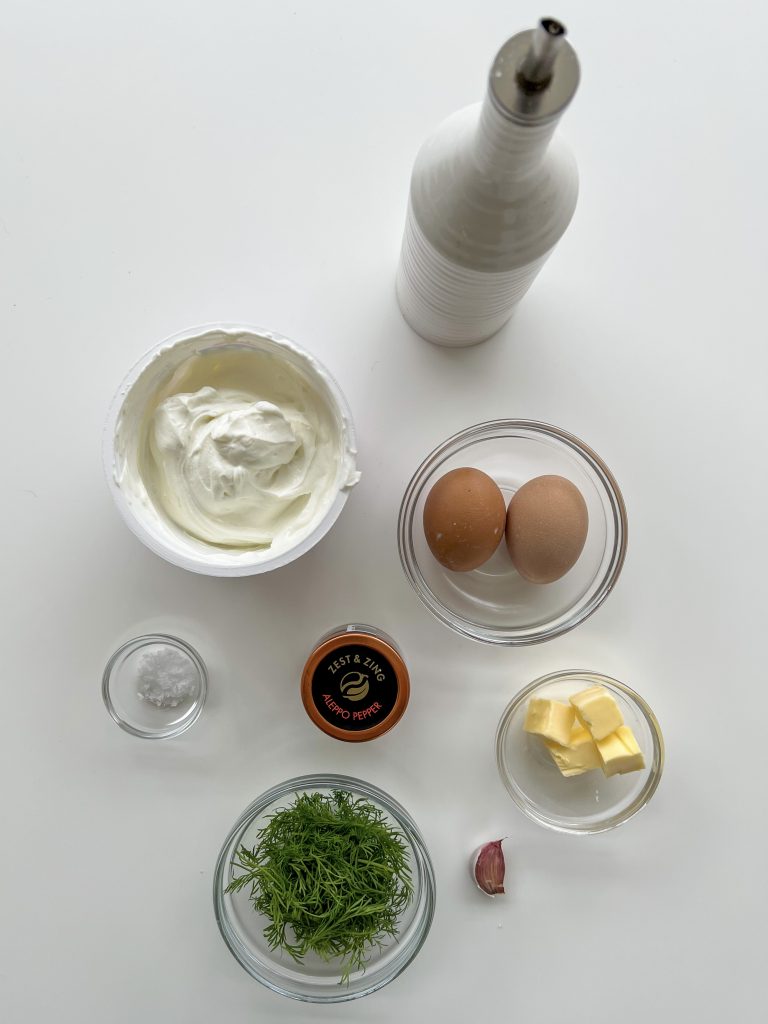
Ingredients 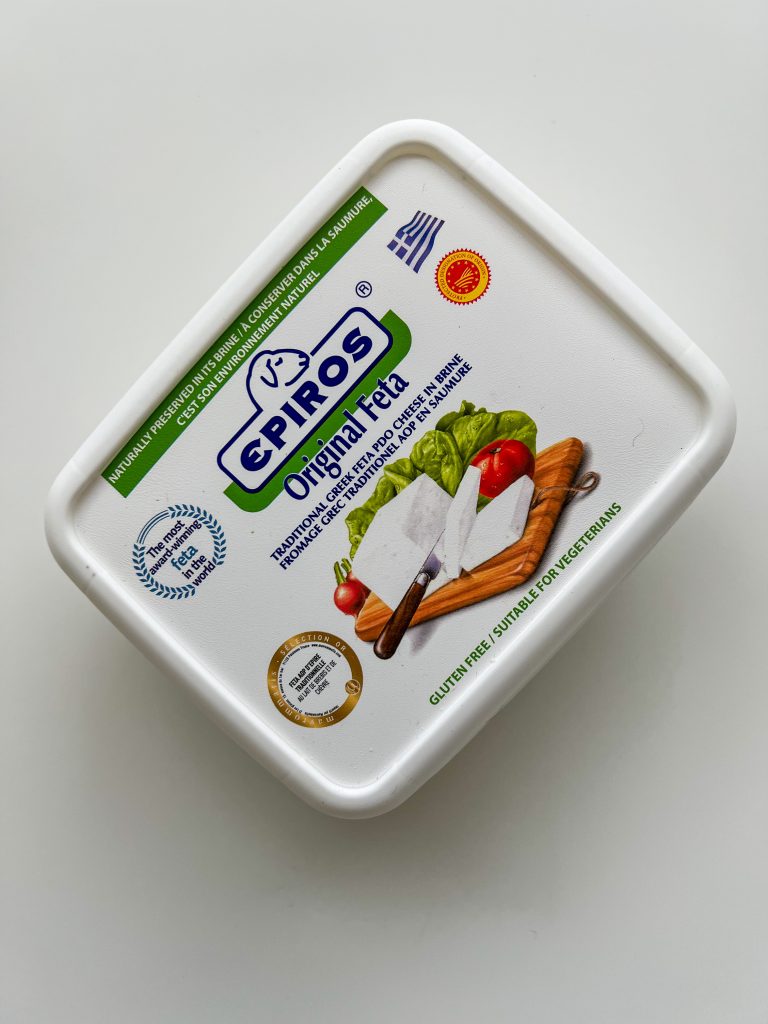
Optional feta cheese 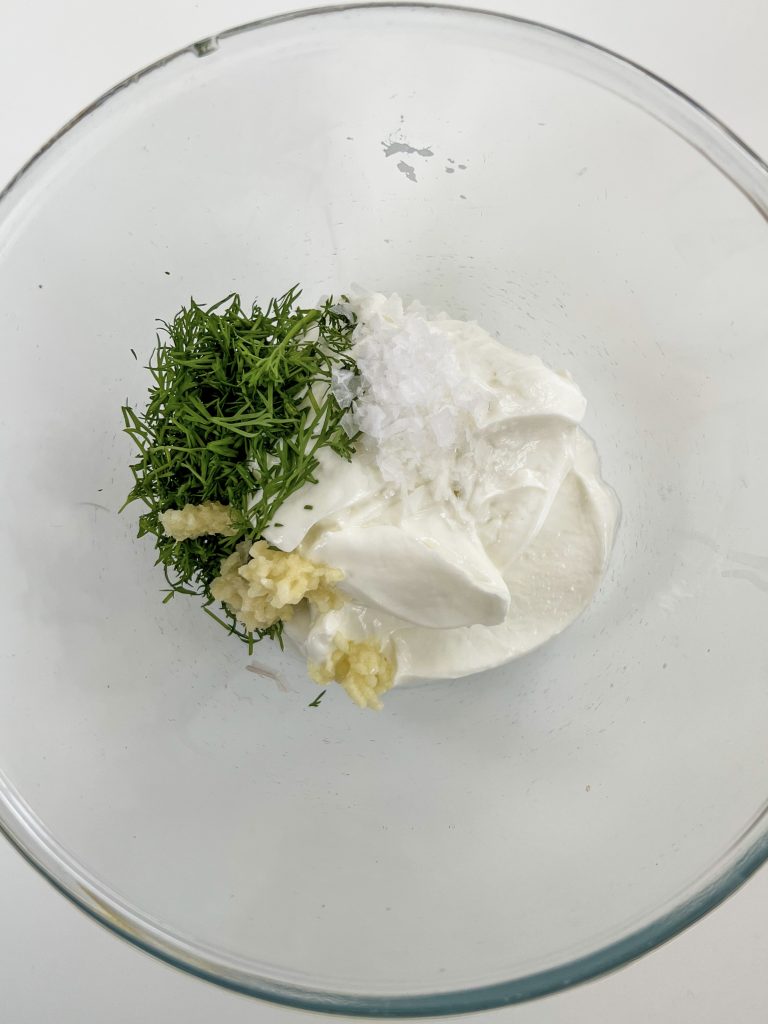
1 Mix yoghurt, dill, garlic and salt 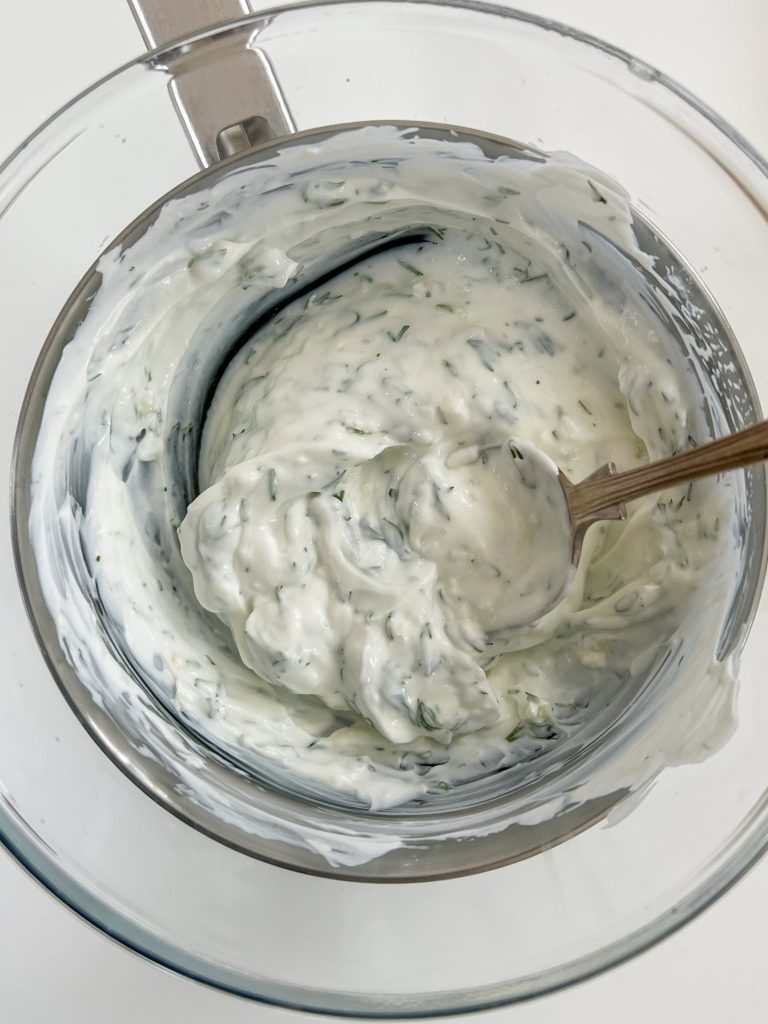
2 Warm, if desired 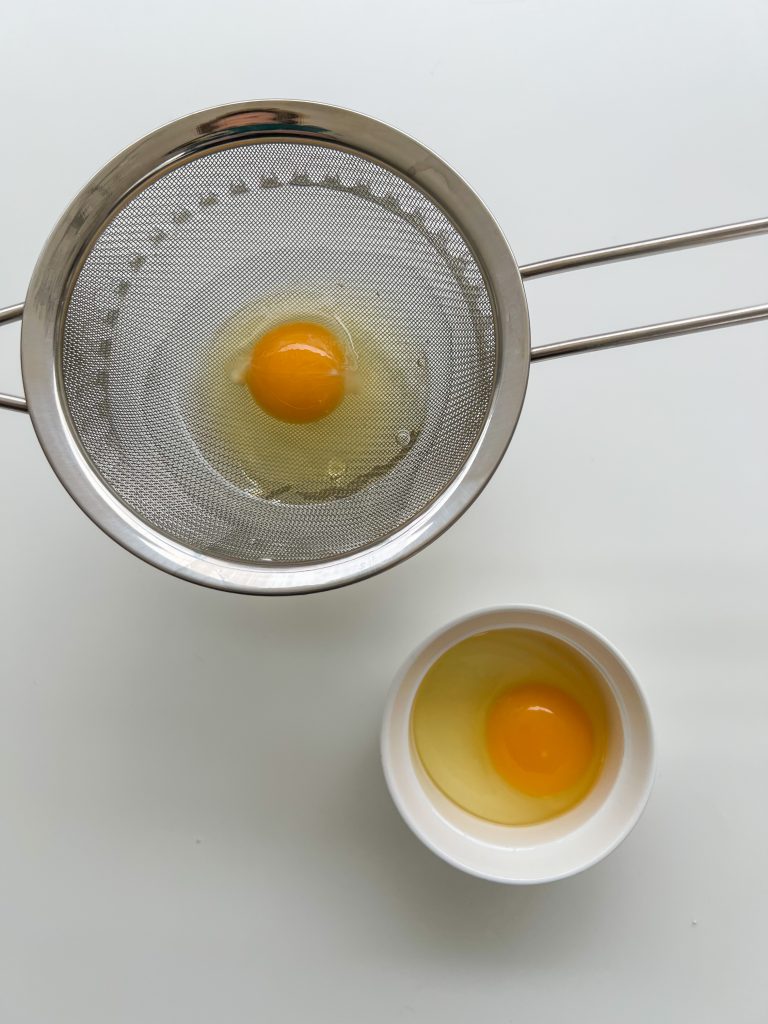
3 Crack eggs onto sieve 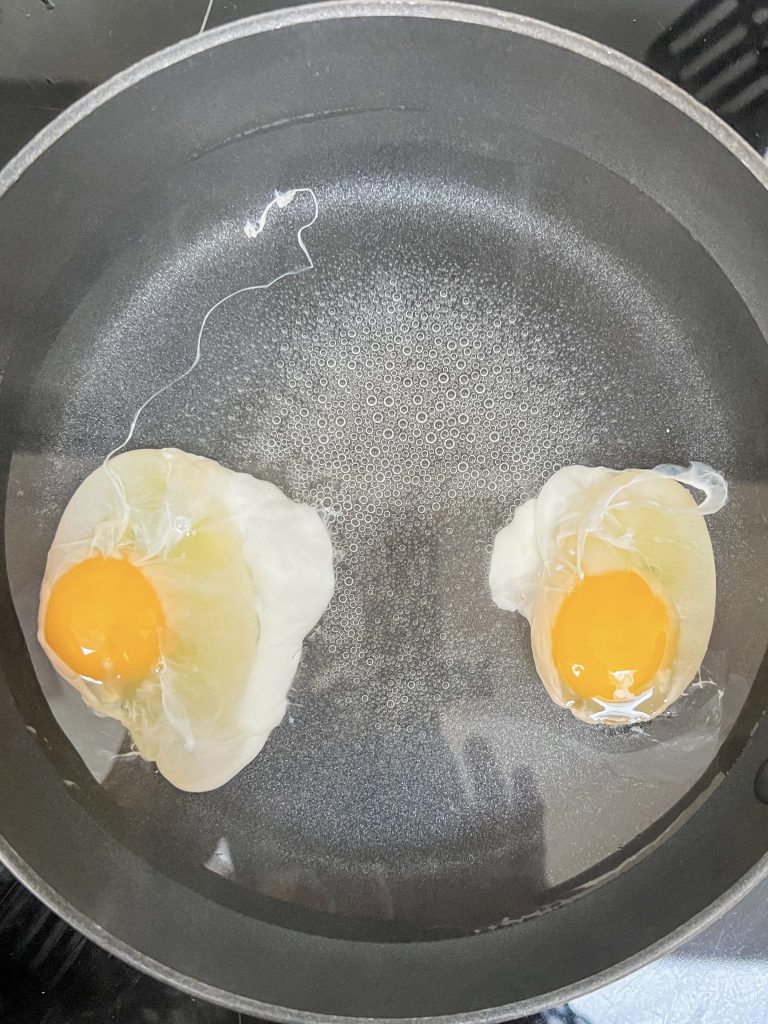
4 Poach 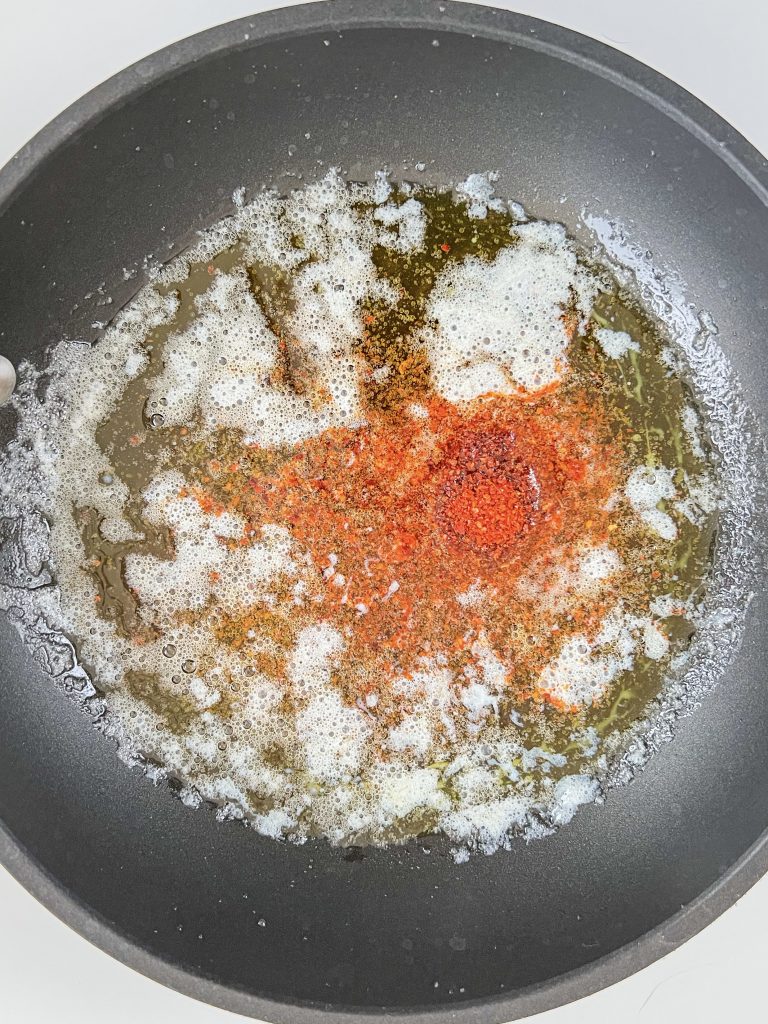
5 Make the Aleppo butter 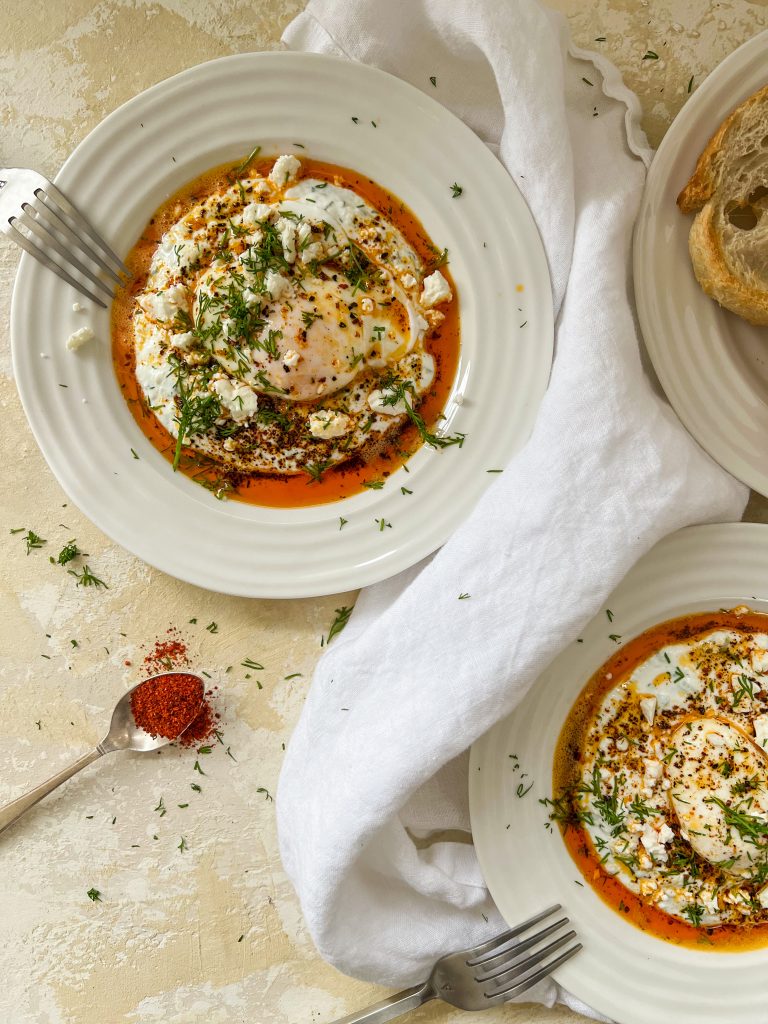
6, 7 Assemble and serve
Made this recipe?
If you make this recipe, do please tag me on instagram @daffodil_kitchen. You could also leave a comment in the box directly below the recipe.
Turkish Eggs
Need breakfast or brunch inspiration? Look no further – Turkish Eggs are healthy, quick to make, and bursting with flavour, texture and goodness.
Ingredients
- 180g Greek yoghurt
- 1 small clove of garlic, peeled and crushed
- ½ teaspoon sea salt granules
- 5g chopped fresh dill
- 25g unsalted butter
- 2 teaspoons olive oil
- 1 teaspoon Aleppo pepper – or ¾ teaspoon sweet paprika powder plus pinch of chilli flakes, to taste
- 2 – 4 fridge cold eggs (either 1 or 2 per person)
- feta cheese, optional and to taste. I use around 50g
- sourdough toast
Instructions
-
Collect together your equipment (see Recipe Notes below) and ingredients.
-
Prepare the yoghurt base: in a mixing bowl stir together the Greek yoghurt, garlic, salt and half of the chopped fresh dill.
-
You can either serve the yoghurt as is, or you can warm it slightly by sitting the mixing bowl over a saucepan of barely simmering water and heating very gently. Give it an odd stir and check it is not getting too warm.
-
Poach the eggs: place a sieve over a bowl and crack one egg at a time into the sieve so that the really runny white can be separated from the egg. Tip the egg into a ramekin and repeat.
-
Fill a pan with sufficient water to cover the eggs and bring to a very, very gentle simmer. You should be able to see small bubbles on the base of the pan, the water should not be splashing around. Try not to use a very deep pan. Gently tip the eggs in the water and cook for 2 – 3 minutes, until the white has set and the yolks are soft, or cooked to your liking.
-
Make the Aleppo butter: melt the butter over a medium heat, add the olive oil and Aleppo pepper and stir to mix.
-
Assemble the dish:
– a layer of yoghurt on the base of a plate
– an egg or two eggs
– drizzle over the Aleppo butter
– crumble over some feta cheese
– sprinkle over the remaining fresh, chopped dill
-
Serve with hot fresh toasted sourdough or your favourite bread.
Recipe Notes
Equipment:
- kitchen scales and measuring spoons
- chopping board and knife
- mixing bowl
- small saucepan, if necessary
- pan for poaching the eggs
- small frying pan to make the Aleppo butter
More from my site
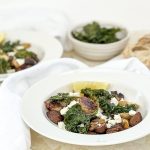 Roast Kohlrabi, King Oyster Mushrooms and Artichokes, served with Crispy Kale and Crumbled Feta, drizzled with a Chilli, Garlic, Brown Butter
Roast Kohlrabi, King Oyster Mushrooms and Artichokes, served with Crispy Kale and Crumbled Feta, drizzled with a Chilli, Garlic, Brown Butter Eggy Bread
Eggy Bread Green Shakshuka with Leeks, Laverbread and Caerphilly Cheese, Yoghurt with Green Chilli Oil
Green Shakshuka with Leeks, Laverbread and Caerphilly Cheese, Yoghurt with Green Chilli Oil American Pancakes
American Pancakes Appenzeller Toast
Appenzeller Toast Potted Salmon, Horseradish and Pickled Cucumber
Potted Salmon, Horseradish and Pickled Cucumber
You May Also Like
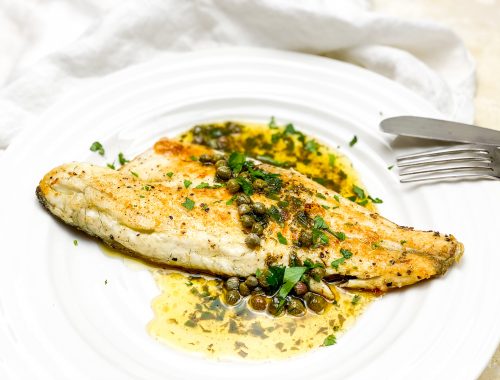
Beurre Noisette with Lemon, Parsley and Capers
19th August 2021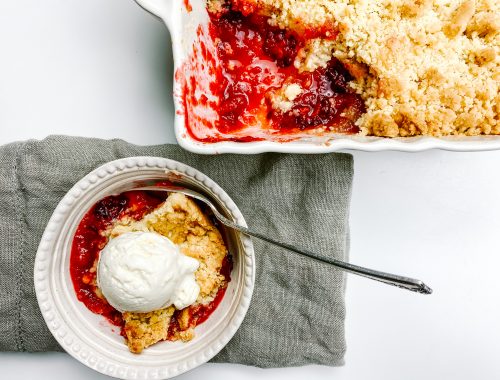
Blackberry and Apple Crumble with Chai Spice and Vanilla
27th October 2020